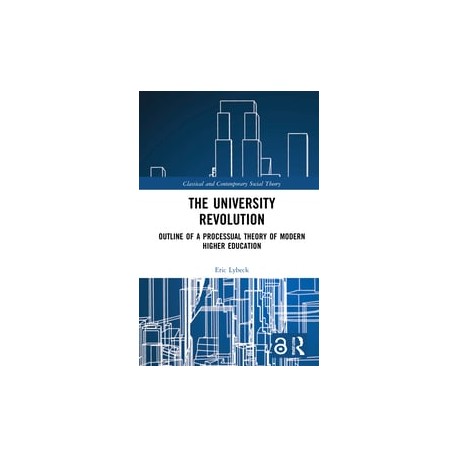No products
 View larger
View larger
The University RevolutionOutline of a Processual Theory of Modern Higher Education By Eric Lybeck
M00001463
New product
In stock
More info
Few institutions in modern society are as significant as universities, yet our historical and sociological understanding of the role of higher education has not been substantially updated for decades. By revisiting the emergence and transformation of higher education since 1800 using a novel processual approach, this book recognizes these developments as having been as central to constituting the modern world as the industrial and democratic revolutions. This new interpretation of the role of universities in contemporary society promises to re-orient our understanding of the importance of higher education in the past and future development of modern societies. It will therefore appeal to scholars of social science and history with interests in social history and social change, education, the professions and inequalities.
Table of Contents
1. The University Revolution; or Academization Process
2. The Systemic Evolution of Universities: Ben-David’s ‘Centers of Learning’ as World-systems Analysis
3. The Ideological Organization of University Systems: A Theoretical Framework
4. Paradoxes of the Academization Process: Foreign and Classical Language Education since 1864
5. Women and Higher Education: Two Ideas of Equality in 19th Century Britain
6. "Without any Reason for Being": Interdisciplinarity at the 1904 World's Fair
7. Conclusion: Reconstructing the Academic Profession
View More
Author(s)
Biography
Eric Lybeck is Presidential Fellow at the University of Manchester, UK, and co-editor of Sociological Amnesia: Cross Currents in Disciplinary History. He is editor-in-chief of the open-access journal, Civic Sociology.
Reviews
"This is an important and timely book. The modern university was formed in the last decades of the 19th century. However, its collegial organization facilitated a later adaptation of knowledge and culture toward democratic purposes. Lybeck shows how recent re-organization along managerial lines has shifted the university toward private interest in human capital and service to the knowledge economy. It represents an educational counter-revolution with profound implications for society and culture."
John Holmwood, University of Nottingham, UK
Book Series
This book is included in the following series:
Classical and Contemporary Social Theory
